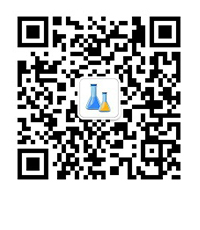Search Product
Structure Search
Search
Advantage Products
Location: Industrial Info
How does aspirin prevent cardiovascular disease and cancer? Scientists have revealed a new mechanism
2016-09-14
来源:转载自第三方
14 September 2016

With more than 100 years of history, aspirin has been the mainstream drug in people's daily life, in addition to use as antipyretic analgesic drugs, it can also prevent cardiovascular disease and colon cancer. But for its mechanism of action, people have not been very clear. Recently, Deepak Voora and Geoffrey S. Ginsburg of Department of Medicine, Duke University have proposed a new mechanism of action for aspirin, which seems to explain its many benefits.
The ability of aspirin to reduce pain and dilute blood has long been attributed to its ability to block COX-1, an enzyme involved in inflammation and blood clotting. But this ability only explains in part how aspirin benefits cardiovascular health and does not confirm its involvement in cancer.
Scientists focused on the aspirin response signature (ARS) metabolite spectrum, identified 62 co-expression transcription products. 60% of the ARS transcripts were regulated by a transcription factor—RUNX1 protein, and 48% of the ARS gene promoter contained a binding site for the RUNX1 protein. Cell experiments showed that the expression of RUNX1 P1 and MYL9 was up-regulated in the presence of aspirin (acetylsalicylic acid) and its metabolites salicylic acid, both of which were regulated by the RUNX1 protein. In patients with cardiovascular disease, the expression of RUNX1 P1 is closely related to death and myocardial infarction. RUNX1 is also a tumor suppressor gene for gastrointestinal malignancies. The association between the expression of RUNX1 P1 and the disease-free survival rate of colon cancer patients also suggests the role of RUNX1 in the protective effect of aspirin on colon cancer. Based on the above studies, scientists said that the impact of aspirin on RUNX1 and its expression may be a further explanation of the impact of aspirin on cardiovascular disease and cancer.
The researchers said that the use of genomics data to comprehensively evaluate a mechanism of drug action is likely to change the drug development and clinical treatment. Scientists will use this method to explore the multiple effects of drugs more widely in order to anticipate their side effects and understand their full clinical mechanisms of action.
Related links: salicylic acid
Edited by Suzhou Yacoo Science Co., Ltd.
如果涉及转载授权,请联系我们。












